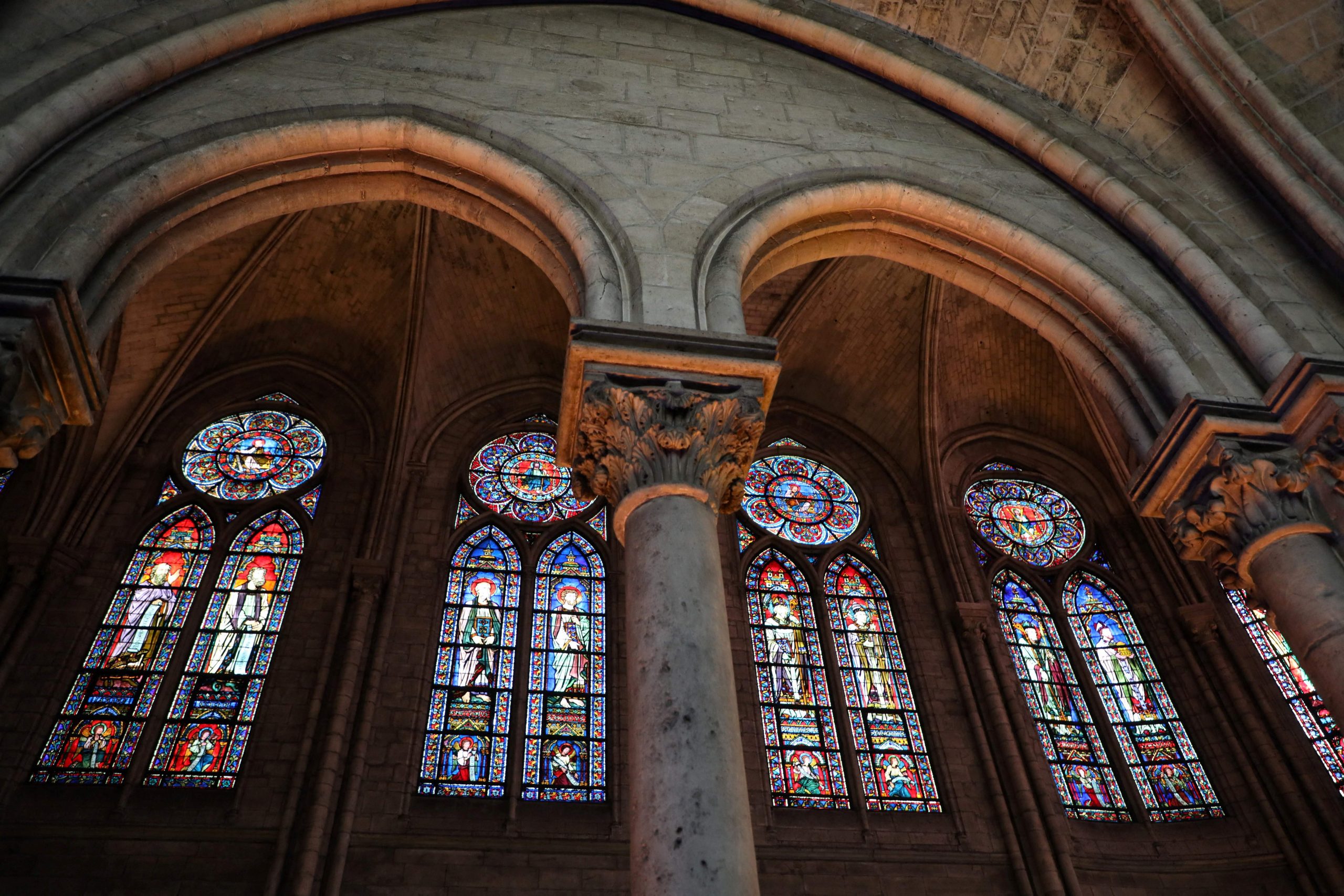
A highly controversial proposal to replace the historic stained glass windows in Paris’s iconic Notre-Dame cathedral with contemporary works has been rejected by France’s National Heritage and Architecture Commission. President Emmanuel Macron could still go against its advice but his position has been significantly weakened by the shock result of France’s recent election.
The original windows were made in the 19th century by architect Eugène Viollet-le-Duc and fill six chapels along the cathedral’s south aisle. They were not damaged by the devastating fire of 2019, but Macron announced last December his plan that they be transferred to a museum to make space for the installation of new versions. Some 100 contemporary artists had already produced designs for a competition to create the replacement windows, including by the French artists Daniel Buren, Laure Prouvost, and Claire Tabouret.
Unfortunately for them, the Commission has decided unanimously that the plan would violate the Venice Charter, which offers international guidelines for the conservation of historic buildings, according to Le Figaro.
Macron’s suggestion sparked an immediate backlash, with a petition launched by online art magazine La Tribune de l’Art gaining over 140,000 signatures. The accompanying open letter said that Viollet-le-Duc’s design evinced “a search for architectural unity and a hierarchy of space.” It argued: “What sense does it make to restore the cathedral to its last known historical state (before 15 April 2019), that of Viollet-le-Duc, only to deprive the building of an essential element that Viollet-le-Duc wanted? Who gave the Head of State a mandate to alter a cathedral that does not belong to him, but to everyone?”
Another of Macron’s suggestions, that the destroyed spire of Notre-Dame be replaced by a “contemporary architectural gesture” also faced fierce backlash and was abandoned in favor of building a replica of the original.
The split nature of the vote at France’s recent election has left the nation’s arts policy in limbo as the country waits to see what kind of majority coalition of parties will emerge. It will almost certainly include left-leaning parties from the New Popular Front alliance, which shocked pollsters by receiving the most votes in the second round of voting.